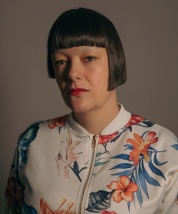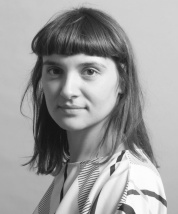Body in Plural
Two female choreographers revisit the last Youth Day mass performance in socialist Yugoslavia, challenging the liberal idea of freedom.
Ligia, a 40-year-old choreographer of color from Berlin, is coming to Belgrade for an artist residency. She will collaborate with Sonja, a 72-year-old Belgrade native, anti-Milosevic activist, and retired dancer who famously performed at the last Youth Day celebration in 1988, just before the fall of the Berlin Wall and the beginning of the Yugoslav wars. Working together in a studio located in the utopian architecture of socialist modernism, they delve into experiences of utopia and dystopia, age, gender, and race. The liberal idea of freedom, celebrated in the last Youth Day performance, is hindered for various reasons. Whose freedom is it, then? Who has and who does not have the right to it? These are the questions that Body in Plural opens up through the relations between the female body, architecture, and ideology.
Body in Plural explores the last socialist mass performance in Yugoslavia—the 1988 Youth Day celebration, also known as Slet. This event was unique in many ways, considering the presence of 9,000 performers. However, dancer Sonja Vukićević dominated the scene and turned the 1988 Slet into a dance solo of gigantic proportions. It was the first time in history that the entire choreography and set were mobilized to single out one body—the virtuosic body of a dancer. This was the social choreography of the new era—the era of individualism and liberalism. In the film, I work with childhood memories, archive footage, and two female choreographers—Sonja and Ligia. Through their dance and our collaboration, we witness (im)possible solidarities and tensions between history, memory, and ideology —the past and the future.



(54999) 2F, JEONJU Cine Complex, 22, Jeonjugaeksa 3-gil, Wansan-gu, Jeonju-si, Jeonbuk-do, Republic of Korea
T. +82 (0)63 288 5433 F. +82 (0)63 288 5411
(04031) 4F, 16, Yanghwa-ro 15-gil, Mapo-gu, Seoul, Republic of Korea
T. +82 (0)2 2285 0562 F. +82 (0)2 2285 0560
(54999) JEONJU Cine Complex, 22, Jeonjugaeksa 3-gil, Wansan-gu, Jeonju-si, Jeonbuk-do, Republic of Korea
T. +82 (0)63 231 3377
Privacy PolicyTerms of service
COPYRIGHT © JEONJU International Film Festival ALL RIGHTS RESERVED (M2)